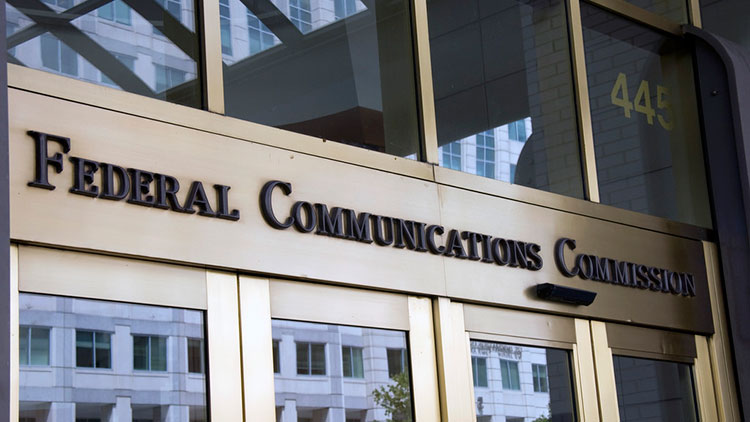ISPs Back Legislative Limitation on Paid Prioritization

The smarter way to stay on top of broadcasting and cable industry. Sign up below
You are now subscribed
Your newsletter sign-up was successful
Associations representing the "vast majority" of wired and wireless broadband providers pledged Wednesday (Dec. 13) not to block or throttle content, and would also support legislation that would prevent a paid prioritization regime where ISPs engineered so-called slow lanes and charged a toll to get on the fast lane.
Those promises came in a press conference with Michael Powell, president of NCTA – The Internet & Television Association; Meredith Attwell Baker, president of CTIA; and Jonathan Spalter, president, USTelecom, all members of the Broadband for America coalition.
Powell said they were ready for Congress to step in with rules, including prohibiting what he suggested would be unreasonable paid prioritization.
It also comes a day before the FCC is expected to vote along party lines to eliminate most network neutrality regulations, leaving the FCC and Federal Trade Commission to monitor those ISP pledges and the FTC and Justice Department to step in if their actions or practices fall short of those promises or constitute unfair or anticompetitive conduct.
While ISPs have pledged no blocking and throttling, their position on paid prioritization has been more finessed. Powell, who led the call, said that was in part because the term was not clear, but signaled he was open to discussions about legislative fixes.
Powell said that while there were pro-consumer prioritization possibilities, it would not be in ISP's interests to come up with a regime to un-degrade for a price. He also pointed out that while the rules have already allowed for private fast lanes, ISPs have not rushed to create those--the FCC had signaled that such private nets could not be used as a way to skirt net neutrality rules, so there was also some built-in disincentive to, say, creating a video service over a private net.
Powell said he did not exactly what a legislative limitation on paid prioritization would look like, but that "the idea that ISPs would attempt to engineer a degraded, slow-lane experience for some people and cause people to pay a toll to have a significantly higher quality experience is something we recognize and would support forceful rules to prevent."
The smarter way to stay on top of broadcasting and cable industry. Sign up below
Powell encouraged Democrats and activists concerned about paid prioritization to engage with the other side to "find a formulation that adequately addresses their concerns." He said NCTA would be an active partner in those conversations. Spalter added that USTelecom would encourage those conversations. Attwell Baker said her networks were all about getting faster, and she could not see them slowing their nets and retaining customers. "Just imagine the commercials and tweets you would see from the other providers."
She talked about being able to differentiate services--the pro-consumer argument for some types of paid prioritization, which depends on customers having competitive choices, which she said was the case with wireless.
Powell, who led the call, said that, sadly, the debate over the rule rollback has been marred by a lack of civility and rational debate. He said one of the most unfortunate aspects was that the public had been given a catastrophic, and inaccurate, vision.
Powell, joined by Spalter and Attwell Baker, said that the internet the day after the vote will look just like the one before it.
Powell said the net will not be compromised in any meaningful way, not for shoppers, political speakers, educational institutions, or anyone else.
He said that was not just a hollow pledge, but was in ISPs in self-interest. "ISPs like net neutrality, too," he said. "They make a lot of money on an open internet." He said an open model is much more profitable than one that creates artificial scarcity--Powell is a former antitrust lawyer at Justice.
The prior FCC did not just adopt net neutrality protections, said Powell; it grabbed the power to regulate the 'net as a common carrier--Title II--which allowed the FCC to regulate and set prices, pass on new services, and set virtually every term and conditions on service. The FCC pledged not to do most of that in the 2015 Order, but Powell pointed out it still gave itself the power.
The ISPs took aim at the edge, saying that the 'net is essentially a symbiotic relationship between ISPS and Google and Amazon and other edge providers, and that it made sense for them all to be under the same regulatory, or deregulatory, regime.
Powell said the edge regularly engages in conduct that could be described as blocking or prioritizing. If that behavior could also now be potentially undertaken by ISPs, it makes sense for both the edge and those ISPs to be overseen by the same agency--the FTC.
As to whether the FCC's decision will pass court muster, which opponents have suggested it will not, Powell said it should.
He called the decision imminently defensible, making the point that the FCC is returning to a (Title I, information services definition-based) regime that was upheld by the Supreme Court--in the Brand X decision.
Contributing editor John Eggerton has been an editor and/or writer on media regulation, legislation and policy for over four decades, including covering the FCC, FTC, Congress, the major media trade associations, and the federal courts. In addition to Multichannel News and Broadcasting + Cable, his work has appeared in Radio World, TV Technology, TV Fax, This Week in Consumer Electronics, Variety and the Encyclopedia Britannica.

